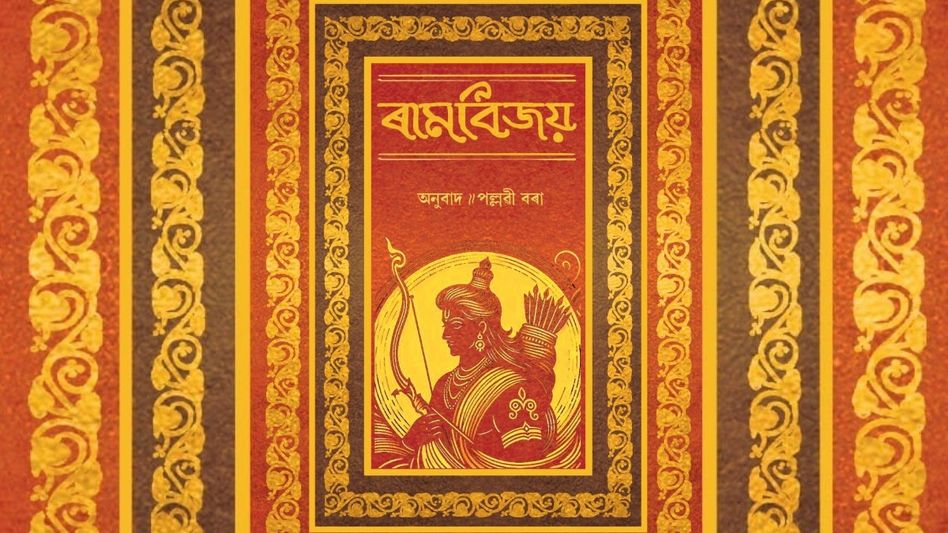‘Ram Vijaya’ in Assamese: A Spiritual classic reimagined for regional readers
Assamese readers now have a new doorway into timeless devotion with the release of Ram Vijaya in their mother tongue, thanks to Roopkar Prakashan.

Assamese readers now have a new doorway into timeless devotion with the release of Ram Vijaya in their mother tongue, thanks to Roopkar Prakashan.
The work, rooted in the mythological tales of Lord Ram and Lord Vishnu, carries with it both spiritual depth and literary grace, and has long been revered for its exaltation of divine leelas and eternal virtues.
What makes this release more than a mere translation is its layered resonance. For followers of Shirdi Sai Baba, Ram Vijaya holds an especially sacred place. The Sai Satcharita records how Baba urged His devotees to engage with its verses, and even in His final days, He sought solace in its recitation. That historical and devotional connection lends the Assamese edition a spiritual continuity that transcends both time and geography.
Also Read: Assam: Former Congress leader Daniel Langthasa announces new regional party, pledges 2026 poll battle
At the heart of this endeavour is Pallabi Borah, making her debut as a translator. Her work brings the text into Assamese with a delicate balance—retaining its devotional gravity while ensuring accessibility for contemporary readers. Borah, who has also revived the iconic Roopkar magazine, demonstrates through this project a continuing commitment to preserving and enriching Assam’s literary heritage.
Priced at an inviting ₹150 and distributed by the Assam Publishing Company in Panbazar, the book positions itself not as an elite collector’s item but as a companion for the common reader seeking spiritual reflection. The thoughtful cover design by Dr. Sanjib Bora complements the text, inviting readers to open its pages with reverence.
In its Assamese incarnation, Ram Vijaya becomes more than scripture—it is a cultural bridge, binding together devotion, literature, and memory, while offering a rare opportunity to revisit a text that shaped spiritual practices across generations.
Copyright©2026 Living Media India Limited. For reprint rights: Syndications Today









